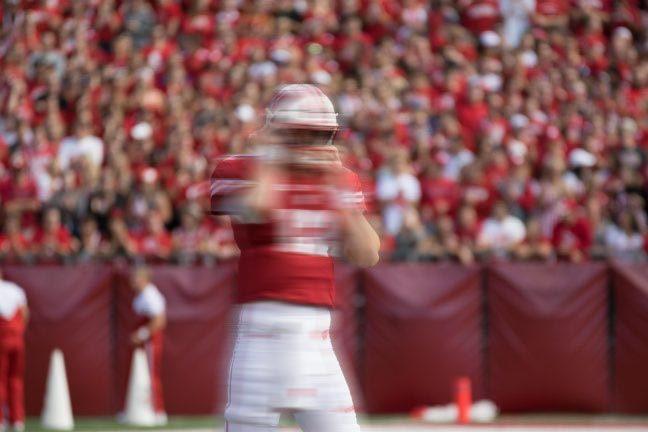Our sports heroes are invincible.
Their feats become legendary. They hit harder and run faster. Simply by the virtue of their physical prowess and the investment so many of us put into the games they play, they become infallible heroes.
The problem is, that is not how the athletes themselves feel.
Dr. Claudia Reardon is an associate professor in the University of Wisconsin Department of Psychiatry and is the Badger Athletics consulting sports psychiatrist. Reardon sees athletes from many of the sports on campus and has a unique view of the challenges and stigmas faced by student athletes.
Reardon divides her patients into three categories.
The first are student athletes with mental health issues that run parallel to their lives as athletes and are completely coincidental.
Next, there is the case in which the sport is actually helpful for their condition.
“They were drawn to the sport as a self-treatment for the mental health issue,” Reardon said. She gave the example of a long-distance runner, who found the sport helped keep their anxiety at bay from a young age. “It is well known that exercise has anti-depressant effects or anti-anxiety effects.”
Lastly, Reardon noted often their issues can stem from their sport or the related stress of being a student athlete. Sports like lightweight rowing or wrestling can cause eating disorders, but every sport has enough stresses to affect an athlete’s mental health.
“These athletes essentially have two full-time jobs. They take a full academic load and, for many sports, must be traveling out of town every weekend,” Reardon said.
UW Athletes, UHS officials, look for ways to tackle mental health issues
Sports psychiatry also faces unique challenges when it comes to the types of medication prescribed to the athletes. For example, Reardon must be careful to adhere to the NCAA Banned Drugs List.
There are also prescriptions, like lithium for bipolar disorder, that could be dangerous if given to an athlete. Reardon said lithium becomes poisonous in the bloodstream when the patient grows dehydrated, something athletes are obviously prone to.
Reardon noted every drug has side effects, but there are some that would be simply incompatible with athletic performance.
“If I prescribe a 100-meter sprinter a drug with the side effect of drowsiness, they could lose one-one hundredth of a second on their time,” Reardon said. “For the average person, that really doesn’t matter.”
Reardon also spoke about the culture of sports, and how it affects the mental health of the athletes. Already there exists a stigma for mental health. For athletes, this stigma is even stronger in the world of sports, Reardon said.
Along with a heavy stigma surrounding mental health, Reardon added a “culture of toughness” is inherent in many sports
“It’s hard for athletes to go from you not being able to show any sign of weakness on the field to saying ‘Hey, wait a second, I actually don’t feel right’,” Reardon said.
One of the factors that can push an athlete to ignore the stigma and seek out help is if it is affecting their performance, Reardon said. This makes it easier for them to think about it like nutrition or game planning. It becomes more of a performance optimizer and helps break down some of their resistance to seeming weak.
Giving up the game: Student athletes face internal challenges when they leave the field
But there’s a silver lining. Since Reardon first began seeing athletes as a psychiatry resident in 2008, she believes the stigma has decreased.
“It’s gotten easier and I think it is so helpful when individual high-profile athletes share their stories,” Reardon said.
Last month, Cleveland Cavaliers forward Kevin Love published an article in the Player’s Tribune outlining his recent in-game panic attack. He received widespread support from the NBA community and many lauded him for bringing the issue of mental health in sports into the nation’s consciousness.
It can happen to any athlete, in any sport, at any level. Slowly but surely, thanks to those like Love speaking out and the increasing availability of mental health care for student athletes, the stigma of mental health in sports is melting away.














